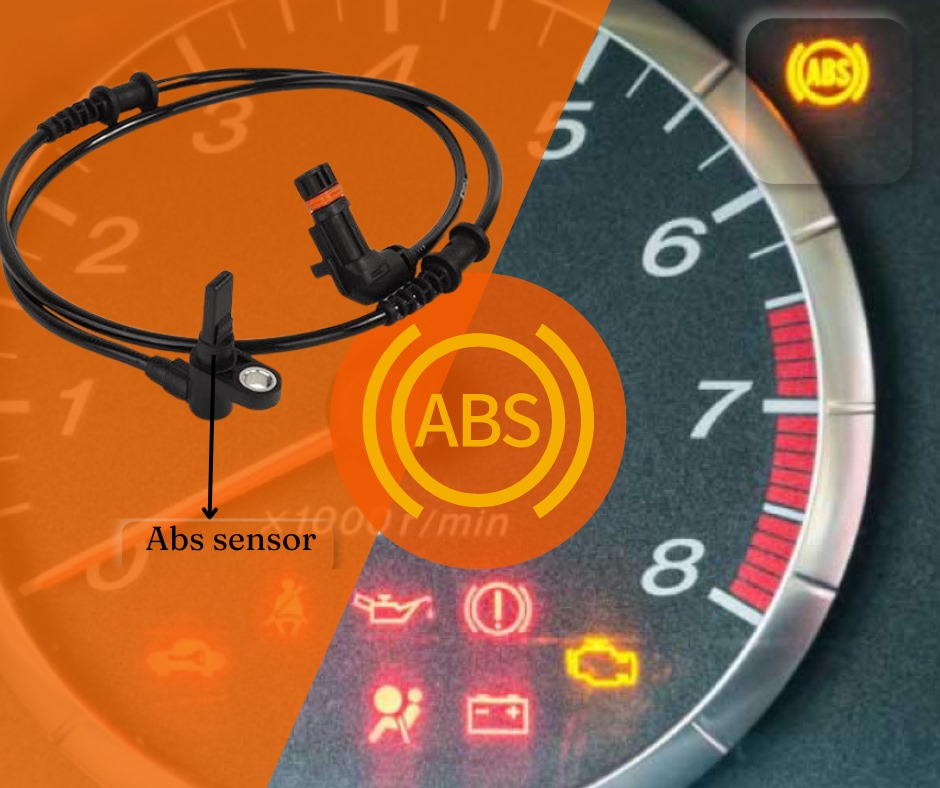Consequences of Ignoring the ABS Light in Your Vehicle

Ignoring your vehicle's ABS light can lead to critical safety hazards and costly repairs. Discover the risks of overlooking this important warning.
Understanding the Role of the ABS in Your Vehicle
The Anti-lock Braking System (ABS) is a critical safety feature in modern vehicles. It prevents the wheels from locking up during an emergency stop, allowing the driver to maintain steering control. ABS works by rapidly pulsing the brakes to prevent wheel lock, which can significantly reduce stopping distances, especially on slippery surfaces. Understanding how the ABS functions can emphasize the importance of addressing any issues indicated by the ABS warning light.
Neglecting the ABS light can compromise your vehicle's safety mechanisms, especially in conditions where traction is already compromised. Without a fully functional ABS, you may experience longer braking distances and a decreased ability to steer around obstacles while braking.
Immediate Risks of Ignoring the ABS Light
When the ABS light illuminates on your dashboard, it signifies a problem within the anti-lock braking system. Ignoring this light can present immediate risks, such as an unexpected increase in stopping distances and a greater chance of skidding during hard braking. Drivers may not notice these effects during normal driving conditions, but the consequences can become suddenly apparent in an emergency situation, potentially leading to a collision.
Additionally, if the ABS light is on, it could indicate an underlying issue that affects not only the ABS but also other related systems like traction control, which often share components and sensors. Ignoring the ABS warning can thus escalate into a more dangerous situation, compromising overall vehicle stability and safety.
Long-Term Impact on Vehicle Safety and Performance
The long-term impact of ignoring the ABS warning light can be quite severe. Over time, the failure to address ABS issues can lead to the deterioration of the system's components, which can compromise the vehicle's braking performance. As the ABS is designed to provide optimal control during braking, a malfunctioning system can result in unpredictable vehicle behavior, increased wear on tires and brakes, and possible damage to other critical components.
Moreover, the consistent disregard for the ABS light can lead to a normalized lack of safety features, where drivers become accustomed to driving without the security of a functioning ABS. This normalization of risk can lead to complacency and increase the likelihood of accidents, especially in challenging driving conditions.
Financial Implications of Delayed ABS Repairs
Ignoring the ABS light can also have significant financial implications. Initial problems that could be relatively inexpensive to fix can evolve into major repairs if left unaddressed. For example, a simple sensor replacement can turn into the need for a full ABS module overhaul, which is considerably more costly. Furthermore, driving with a known ABS issue may affect your vehicle's resale value and could even lead to failed vehicle inspections, depending on the state's regulations.
In addition to repair costs, there are also indirect financial consequences such as increased insurance premiums following an accident that could have been prevented by a fully functional ABS. The potential for liability in the event of a crash where the ABS malfunction was a factor could lead to expensive legal complications. Thus, timely repair of ABS issues is not only a safety measure but also a financially prudent decision.
Steps to Take When Your ABS Light Comes On
If your ABS light comes on, the first step is to safely bring your vehicle to a stop and restart the engine to see if the light remains on. This can rule out any false alarms. If the light persists, it is essential to schedule a diagnostic check with a trusted mechanic as soon as possible. During the diagnostic process, the mechanic will read the ABS codes using a specialized scanner to pinpoint the issue.
Once the problem has been identified, you should have it repaired immediately. Do not ignore the issue, as the ABS is a crucial safety feature. While waiting for the repair, drive cautiously, especially under conditions where ABS would typically be most effective. Always remember, addressing the ABS light promptly can prevent further damage, save money, and, most importantly, ensure your safety on the road.

 Loading..
Loading..